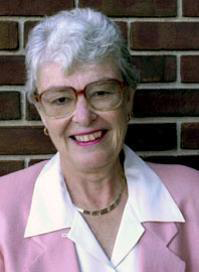
09/07/2012
Judith Best, a political science scholar and consultant to U.S. presidents and Congress on the subject of the Electoral College system, will deliver this year’s Constitution Day lecture on Monday, Sept. 17, at SUNY Cortland.
Best, a SUNY distinguished teaching professor of political science at SUNY Cortland, will address “The Constitution and the Presidential Elections” at 3 p.m. in Brockway Hall, Jacobus Lounge.
Presented by the College and its Institute for Civic Engagement, the talk is free and open to the public.
During her talk, Best will discuss the specifics of the Electoral College including who the members are, how they are chosen and what role they play in the Presidential election. She will explain the American founders’ reasoning and motives for choosing this method of electing the president and will discuss why it should be maintained.
In a very close presidential election such as this one is expected to be, all eyes are on this uniquely American aspect of the political process. The Electoral College has its detractors, but Best is not one of them, although she presents an intriguing notion on how it might be improved.
“Yes and no, I’m a strong defender of the electoral vote system but not necessarily of living electors,” Best said. “We could do away with the office of the elector and simply have the governors certify to the Congress how the votes came out from their state. We would be doing away with the living electors but we would still have electoral votes.”
The number of senate and house members would determine the number of votes so that each state would have the same percentage of influence as it does at present.
“That’s one of the major changes, one of the few constitutional changes that I would make.”
The country’s founders devised the current U.S. Constitutional system of electing a president in a time when there were no televisions, radios or other instant communication methods, Best explained.
“For months, the Constitutional founders wanted to have Congress choose the presidents,” she said. “But they were concerned that would give the Congress too much sway over the president, if they were both the hiring and firing power, that would be too much.
“So the key idea was that the decision was handled federally, with each state based on its population designating someone it sends up separately.”
Toward the end of the long, hot summer when the pivotal governing document was drafted, the founding fathers came up with the idea that there would be a temporary congress, as it were, based on electors chosen in the states, Best noted.
Don’t look for one-individual, one-vote to ever come out of the current U.S. Constitution, she said.
“We have nothing in the Constitution about the presidential election being decided on an all-national vote and that could only be changed by having a Constitutional amendment,” she said.
Best acknowledges that the topic of the Electoral College is very esoteric to the public.
“It’s one that’s extraordinarily important for our country but it makes people’s eyes cross,” she said.
“Dr. Best is a nationally known expert on the Electoral College,” said Richard Kendrick, director of the College’s Institute for Civic Engagement. “The Electoral College has affected the outcome of elections, most recently in 2000 when Vice President Gore lost the election to Gov. George W. Bush even though the vice president won the majority of the popular vote. Dr. Best’s presentation comes at a time when we may be facing a similarly close Presidential election. Understanding the utility of the Electoral College for our political system may be more important than ever.”
Best is the author of numerous academic articles and four published books, including The Case Against Direct Election of the President: A Defense of the Electoral College (Cornell University Press, 1975) and The Choice of the People? Debating the Electoral College (Rowman and Littlefield, 1996).
At the request of the U.S. Senate Committee on the Judiciary, she served on several occasions as an expert witness on the Electoral College system.
Successful SUNY Cortland alumni in political science and public affairs usually point to Best as a mentor and faculty have tapped her expertise on engaging and effective classroom teaching.
She was honored in 1977 with a SUNY Chancellor’s Award for Excellence in Teaching. In 1984, the SUNY Board of Trustees promoted Best to the rank of distinguished teaching professor. She earned a 1986 American Higher Education and Carnegie Foundation Honor Salute for Educational Leadership and was inducted into Phi Kappa Phi.
Best received her Ph.D. in political science from Cornell University. She has a master’s degree and a bachelor’s degree in English literature, from University of Michigan and Michigan State University, respectively.
For more information, contact Kendrick at (607) 753-2481.